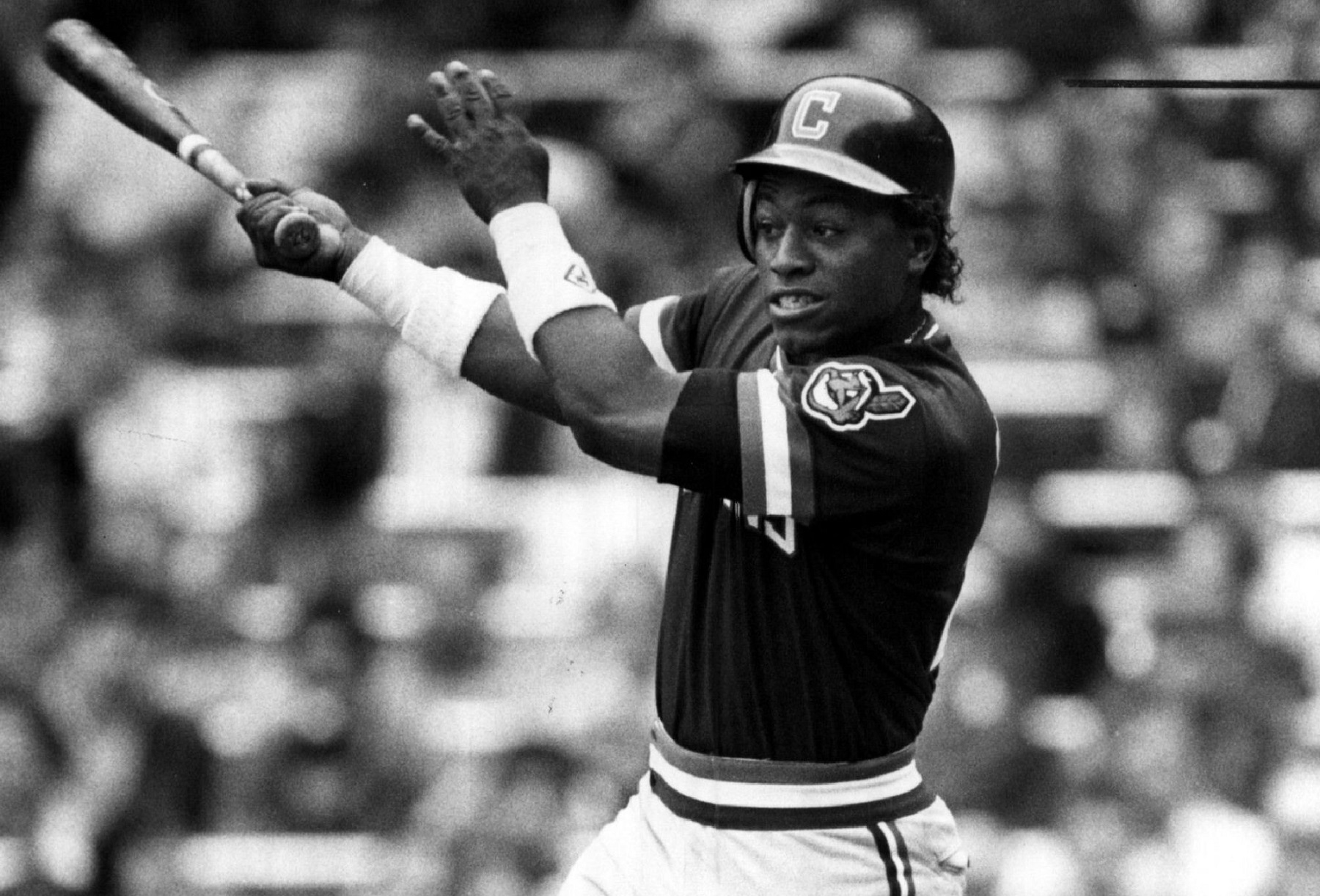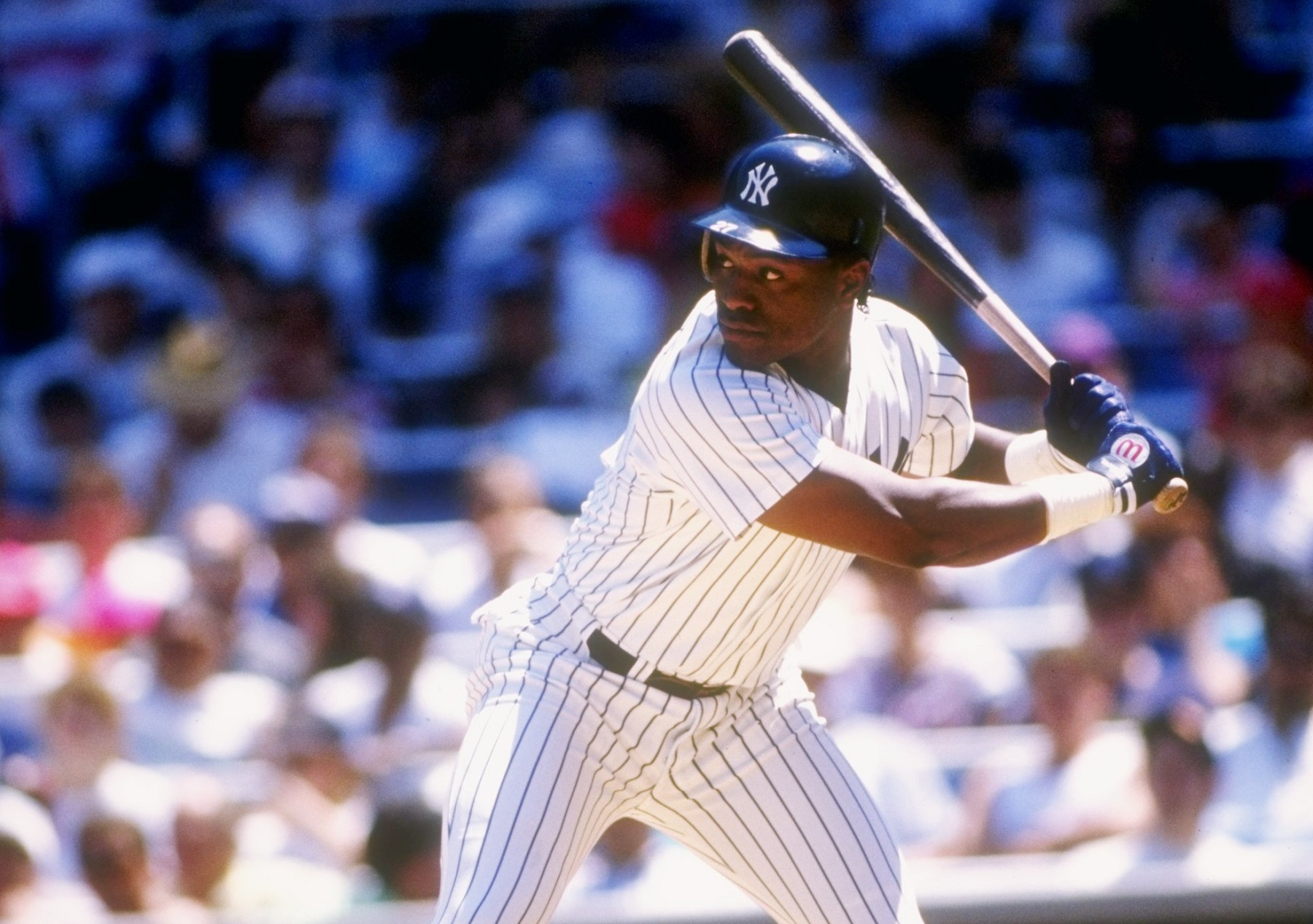Mel Hall: Baseball Career & Controversies - What You Need To Know
Ever heard of a baseball player who could be described as a "that guy," someone you recognize more from a baseball card than from their on-field heroics? That, in essence, is the story of Mel Hall, a figure whose presence in Major League Baseball, while not marked by superstardom, left a distinct imprint on the memories of a generation.
The world of baseball is filled with stories, some etched in gold and glory, others residing in the shadows of near-misses and what-ifs. Mel Hall's career falls squarely into the latter category. He wasn't a household name, a player whose statistics demanded constant attention. Yet, he was there, visible, a part of the tapestry that makes up the game we love. His name surfaces in conversations about the era, a nostalgic reminder of a time when baseball cards were currency, and the dream of the big leagues felt within reach for countless young players. His story is interwoven with the trials, tribulations, and triumphs of the sport, a testament to the enduring allure of the game. The new Peacock docuseries "Bronx Zoo '90" provides a glimpse into this world, adding another layer of complexity to Hall's already intriguing narrative.
| Category | Details |
|---|---|
| Full Name | Melvin John Hall |
| Born | September 16, 1960, Lyons, New York |
| Position | Outfielder |
| MLB Debut | September 11, 1981 |
| Teams Played For | Chicago Cubs (1981-1986), Cleveland Indians (1987-1991), New York Yankees (1991-1995), San Francisco Giants (1996) |
| Career Batting Average | .259 |
| Career Home Runs | 83 |
| Career Runs Batted In (RBI) | 356 |
| Notable Achievement | 1989 Cleveland Indians team leader in home runs |
| Controversy | Convicted of aggravated sexual assault of a child and indecency with a child. |
| Reference | Baseball-Reference.com |
The acquisition of Mel Hall by the New York Yankees in 1991, for instance, represented a shift. It wasn't a blockbuster trade, but it was a calculated move to bolster a team seeking a competitive edge. While the focus often remains on the headline-grabbing names, the contributions of players like Hall, the "spare parts" as they might be perceived, are an integral part of the narrative. The Peacock docuseries, "Bronx Zoo '90," also explores the chaotic atmosphere and the team dynamics of the 1990 New York Yankees, and Mel Hall's presence is woven into this larger fabric of the team's identity during that era. The documentary delves into the complexities of that season, where the pursuit of baseball success collided with the challenges of internal strife and external pressures.
Consider the broader context: the 1990s in baseball were marked by a fluctuating landscape, and the Yankees were navigating both on-field performance and off-field controversies. While the team aimed for the top, it was a period of transition, and players like Hall represented the bridge between eras. His time with the Yankees, even if short-lived, contributed to the team's narrative, forming a connection to the club's past and present. While the Yankees' success was partly due to the performances of key players, the role of those less celebrated, like Hall, cannot be overlooked. He was a piece of the puzzle, a component within a larger operation. The intricacies of these team dynamics are now exposed in Bronx Zoo 90 docuseries.
The name Mel Hall also brings to mind the legal issues he faced, which involved convictions. The first episode delves into this and the subsequent impact on the victims involved. This added a somber layer to his profile, overshadowing his on-field achievements. The case highlights a difficult reality, underscoring how even within the world of sports, human actions can have devastating consequences. The interview with Kim Davignon, the prosecutor in the case, alongside the victim Chaz Easterly, provides a deeper understanding of the situation. This perspective is crucial in offering a more complete, honest portrayal, recognizing the significance of responsible storytelling within the sports world.
The documentary series "Bronx Zoo '90" is not just about wins and losses. It explores the dark underbelly of baseball, shining a light on the complexities of human behavior, and the impact of choices. By examining the lives of individuals involved, the series encourages a broader examination of the game. These narratives expose the interconnectedness of individual behavior and team culture. Hall's case underscores the notion that behind every player is a person, with a complex background, and the choices they make will reverberate far beyond the diamond.
Hall's journey, beginning in Lyons, New York, where he was selected by the Chicago Cubs in the second round of the 1978 draft, captures the essence of the player's career. The path of a baseball player is not always a straight line. There are moments of glory, as well as trials and setbacks. Hall's minor league debut with the GCL Cubs in 1978 saw him hitting .290, showing early signs of his capabilities. He then moved up to various teams, playing for the Cleveland Indians, the New York Yankees, and the San Francisco Giants, and eventually reaching the major leagues, but these were just moments in an evolving career.
As the years passed, his role evolved. While never becoming a superstar, he still made an impact. He continued to be present in the dugout, providing valuable lessons to the younger players. His baseball cards, which are still available today, provide a window into his career. They serve as a reminder of the tangible connections between players and fans. For those who collected his cards, Hall was more than just a name. He was a symbol of aspiration, a connection to the thrill of the game, and a part of the wider baseball community. They are artifacts from a specific period. Each card represents a moment in time, a snapshot of Hall's journey. The significance of baseball cards extends beyond mere aesthetics, allowing fans to connect with the players and the sport on a deeper level.
Hall's story does not just focus on his career. It also deals with the repercussions of his actions. The series details the consequences of his choices and the impact on others. This highlights the importance of taking responsibility for actions, even for individuals who have achieved success in the world of baseball. This aspect of his narrative adds further complexity to the story. The show "Bronx Zoo '90" offers a balanced perspective, acknowledging Hall's place in baseball history but not shying away from the problematic aspects of his life. This ensures a more thorough and informative viewing experience.
The experiences of the people affected by Halls actions are highlighted in the series, providing a more complete understanding of the consequences. Their experiences underscore the value of responsibility, accountability, and the impact of choices on others. The story reflects the ethical dimensions of baseball, and the need for a strong moral compass. The series recognizes the responsibility of baseball figures to act ethically. The documentary provides a space for people to share their stories, and to discuss the impact of Hall's choices. This is vital for healing and awareness, and it fosters meaningful conversations about ethical conduct and personal responsibility.
The influence of baseball cards on the sport's culture and the individual narratives of players cannot be overlooked. Mel Hall's cards, which can be found on many online platforms, are evidence of this influence. These cards function as tangible memorabilia, allowing fans to own a physical piece of baseball history. They become treasured possessions. This adds a layer of personal connection to the sport, giving fans a more profound appreciation for players such as Hall. These cards offer a glimpse into the past, as fans can delve into the player's statistics, achievements, and profile. Baseball cards are more than just pieces of cardboard; they are bridges connecting past and present. For Hall's fans, each card serves as a reminder of his time on the field, his impact on the game, and his place in baseball history.
Mel Hall's place in baseball is complicated, reflecting the intricacies of the sport, both on and off the field. His story provides insight into a player's experience. Halls story is a reminder of the humanity within sports, and the need to treat each other with respect and dignity. It's a reminder that while wins and losses are a part of the game, ethical actions and human well-being are paramount. His legacy is multi-layered and resonates with anyone who remembers the baseball cards, the player, and the complexities of his journey. The "Bronx Zoo '90" docuseries gives a fuller understanding of Hall's story, and underscores the importance of confronting complex issues.


